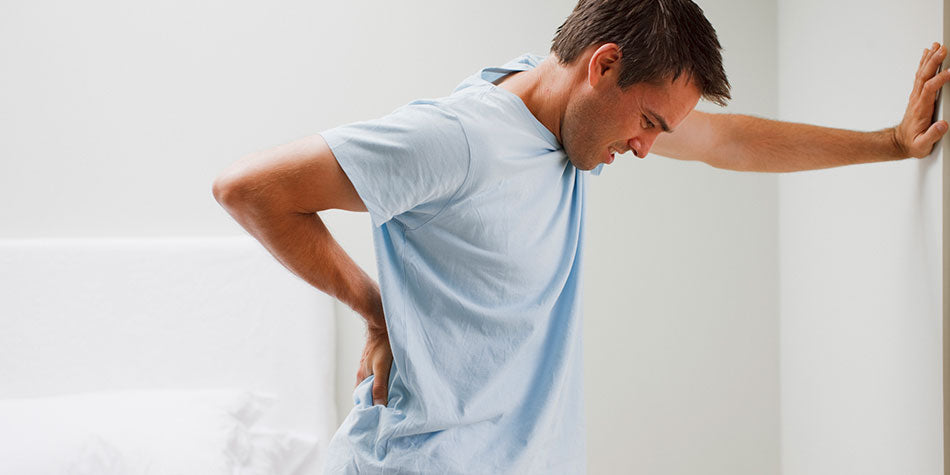
Here's How Slouching and Bad Posture Worsens Your Bloating
|
|
Time to read 3 min
|
|
Time to read 3 min
One day it’s broccoli. Another day, it’s… nothing at all. Bloating seems to appear out of nowhere, disrupting your day and leaving you wondering: Why me? Why now? But here’s the truth; your bloating isn’t random. It’s personal, and more often than not, its because of bad posture.
At Claisen, we believe that your symptoms tell a story. And once you understand the triggers behind your bloating, you can take steps toward real, lasting relief.
It’s easy to blame the usual suspects—beans, carbonated drinks, or fiber-heavy meals. But bloating is often the result of complex interactions inside your gut.
Here are a few reasons behind bloating that most people don’t even think about:
Everyone’s trigger is different. That’s why Claisen uses an AI-powered quiz to uncover your unique causes. Take the quiz here and start understanding what’s really going on inside.
Slouching is more than just a bad habit that affects your back and shoulders—it can also play a surprising role in digestive discomfort, especially bloating. When you slump forward at your desk, on the couch, or while using your phone, you’re not only compressing your spine but also squeezing your abdominal organs. This compression reduces the amount of space your stomach and intestines have to expand and contract, making digestion less efficient.
When you slouch, your abdominal muscles weaken over time, which limits their ability to support proper digestion. Poor posture forces your digestive organs into unnatural positions, slowing down the movement of food and gas through your system. This sluggish digestion often leads to trapped air, increased pressure, and a heavier feeling of bloating after meals.
Slouching can also impact how you breathe. Shallow chest breathing is common when your posture is poor, and this reduces the oxygen supply needed for optimal digestion. With less oxygen and circulation in your abdominal region, your gut struggles to process food smoothly, increasing the risk of bloating and discomfort.
Generic fixes often fall short because they don’t consider your unique body and triggers. That’s why lasting relief comes from a more personalized approach. At Claisen, we’ve built care around three pillars of bloating relief:
Over-the-counter remedies like simethicone (to ease gas) or famotidine (to reduce acid) can be powerful—if they address the real source of your discomfort. The key is matching the right medication to your body’s specific needs, not guessing and hoping for results.
Not all supplements are created equal. For some, digestive enzymes help break down tough foods; for others, soothing agents like DGL (deglycyrrhizinated licorice) or the right probiotic strain make a bigger impact. The difference lies in tailoring the supplement to what your gut actually needs, so you’re not wasting time or money on one-size-fits-all products.
Even small changes to daily habits can transform digestion. Eating dinner a little earlier, chewing more slowly, or cutting back on high-FODMAP foods reduces the burden on your gut. These tweaks may seem minor, but combined with the right medication and supplements, they help create an environment where bloating has less of a chance to flare up.
Your gut microbiome is as unique as your fingerprint. So it makes sense that cookie-cutter advice doesn’t cut it.
Backed by science and guided by AI, Claisen builds a complete care plan based on your biology, habits, and lifestyle. You won’t just mask symptoms, you’ll start solving them. Click on the button below and get started today.
Slouching compresses digestive organs.
Poor posture slows food and gas movement.
Slouching weakens core, worsening bloating.
Shallow breathing reduces digestion efficiency.
Good posture eases bloating and aids gut health.
This article and its contents have been medically reviewed by Aditya Jain (MD at Harvard Medical School and Op-Ed Fellow at Doximity).


